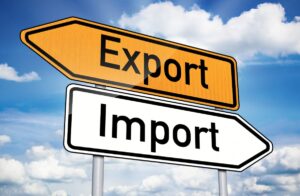
Imports of trucks to Ukraine in January 2026 decreased by 45% in monetary terms compared to the same month in 2025, to $41.1 million, according to statistics from the State Customs Service.
According to the published data, compared to December last year, imports of these vehicles fell by 2.5 times.
Most trucks last month were imported from France – $6.1 million (38.3% less than last year), but their share in total imports of these vehicles increased to 14.9% from 13.3%. Thailand was the second largest exporter with $4.7 million (11.4% share), followed by Lithuania with $4.6 million (11.26%).
In January last year, the top three truck suppliers were the United States, Germany, and France.
Imports of trucks from all other countries decreased by 10.3% to $25.7 million.
At the same time, according to statistics, Ukraine exported only $0.22 million worth of trucks in January, mainly to Turkey, and a year ago there were also insignificant export deliveries (worth $0.76 million), mainly to Romania.
As reported, in 2025, imports of trucks to Ukraine increased by 5.5% compared to 2024, to $999.5 million. with the largest imports coming from France ($169.2 million, up 42.8% from the previous year), Poland ($162.7 million, down 14.7%), and the United States ($109 million, up 2%).
FRANCE, freight vehicle, IMPORTS, LITHUANIA, THAILAND, TRUCK

In January this year, Ukrainian companies reduced imports of copper and copper products by 20.1% in monetary terms compared to the same period last year, to $11.033 million.
According to customs statistics released by the State Customs Service of Ukraine on Tuesday, exports of copper and copper products during the specified period decreased by 28.7% to $4.953 million.
In December, copper imports amounted to $13.311 million, while exports amounted to $10.318 million.
As reported, in 2025, Ukrainian enterprises increased imports of copper and copper products in monetary terms by 23.2% compared to the previous year, to $173.453 million, while exports of copper and copper products grew by 17.7%, to $103.848 million.
In 2024, Ukraine maintained imports of copper and copper products in monetary terms at the previous year’s level — up to $140.797 million, while exports increased by 22.4% — up to $88.237 million.
In 2023, Ukraine increased its imports of copper and copper products by 2.2 times compared to 2022, to $140.795 million, while exports decreased by 20.1%, to $72.078 million.
Copper is widely used in electrical engineering, pipe manufacturing, alloy production, medicine, and other industries.

In January of this year, Ukraine increased imports of aluminum ore and concentrate (bauxite) in physical terms compared to the previous year — up to 97 tons from 31 tons.
According to statistics released by the State Customs Service (SCS) on Tuesday, bauxite imports in December amounted to 5,556 thousand tons.
In January 2026, bauxite imports in monetary terms increased to $83 thousand from $27 thousand.
Imports were made from China (100% of supplies in monetary terms).
Ukraine did not re-export bauxite in 2026, as in 2025.
As reported, in 2025, Ukraine increased imports of aluminum ore and concentrate in physical terms by 23.7% compared to the previous year, to 43.5 thousand tons, and in monetary terms by 15.8%, to $4.754 million. It was mainly carried out from Turkey (81.84% of supplies in monetary terms), China (15.97%), and Guyana (2.19%).
Ukraine did not re-export bauxite in 2025, as in 2024 and 2023.
In 2024, Ukraine increased its imports of bauxite in physical terms by 77.4% compared to 2023, to 35,173 thousand tons, and in monetary terms by 74%, to $4.107 million. Imports were mainly from Turkey (78.48% of supplies in monetary terms), China (19.48%), and Spain (1.9%).
In 2023, Ukraine imported 19,830 thousand tons of bauxite worth $2.360 million.
In 2022, Ukraine reduced imports of aluminum ores and concentrates (bauxite) in physical terms by 81.5% compared to the previous year, to 945,396 thousand tons. Bauxite imports in monetary terms decreased by 79.6% to $48.166 million. Imports were mainly from Guinea (58.90% of supplies in monetary terms), Brazil (27.19%), and Ghana (7.48%).
Bauxite is an aluminum ore used as a raw material for producing alumina, which is then used to produce aluminum. It is also used as a flux in ferrous metallurgy.
Bauxite is imported into Ukraine by, among others, the Mykolaiv Alumina Plant (MAP), which is currently idle.

Imports of goods to Ukraine in January 2026 amounted to $6.7 billion in monetary terms, while in January 2025 this figure was 22% lower at $5.5 billion, in January 2024 – $5.1 billion, and in January 2023 – $4.8 billion, according to data from the State Customs Service of Ukraine (SCS).
According to data published on Tuesday on the SSU’s Telegram channel, in monetary terms, exports of goods remained at the 2025 level and amounted to $3.2 billion, while in 2024 this figure reached $3.4 billion, and in 2023 – $3.1 billion.
“At the same time, taxable imports amounted to $4.4 billion, which is 66% of the total volume of imported goods. The tax burden per 1 kg of taxable imports in January 2026 was $0.5/kg,” the report said.
The SSU noted that China imported the most goods to Ukraine, worth $1.9 billion, followed by Turkey, worth $703 million, and Poland, worth $623 million.
In turn, the most goods were exported to Poland, worth $358 million, Turkey, worth $276 million, and Italy, worth $232 million.
Of the total volume of goods imported into Ukraine in January 2026, 69% of the categories were machinery, equipment, and transport – $2.7 billion (14.8 billion hryvnia, or 24% of customs revenue, was paid to the budget during customs clearance), fuel and energy products accounted for $1.1 billion (UAH 26.6 billion, or 43% of revenues), and chemical industry products accounted for $869 million (UAH 7.1 billion was paid, which is 11% of customs payments).
The top three most exported goods from Ukraine were food products ($2 billion), metals and metal products ($286 million), and machinery, equipment, and transport ($253 million).
The State Customs Service added that in January 2026, UAH 187.1 million was paid to the budget from customs clearance of exports of goods subject to export duties.

Electricity imports to Ukraine in January 2026 increased by 40% compared to December 2025 and amounted to 894.5 thousand MWh, according to the DIXI Group analytical center, citing data from Energy Map.
“This is the highest monthly figure since the launch of the new electricity market in July 2019,” the center said.
There were no electricity exports in January.
For comparison: in January 2025, electricity imports amounted to 183.1 thousand MWh, while exports amounted to 84.7 thousand MWh, according to statistics from DIXI Group.
In January, Hungary accounted for the largest share of imports – 45%, or 402.0 thousand MWh. Romania accounted for 21% of the resources provided to Ukraine (185.9 thousand MWh), Slovakia – 18% (159.8 thousand MWh), Poland – 15% (135.2 thousand MWh), and Moldova – 1% (11.6 thousand MWh).
The growth in imports from European countries ranged from 18% to 62%, with the exception of Moldova, from which supplies decreased by 18%.
According to DIXI Group analysts, in January 2026, the maximum capacity of inter-state crossings for electricity imports from the European Union to the joint Ukraine-Moldova regulation block increased to 2.45 thousand MW, which is a record since Ukraine joined the ENTSO-E network. At the same time, part of this capacity is used to import electricity to Moldova, so Ukraine has access to about 2.1 thousand MW of commercial imports. At the same time, the amount of permitted import capacity for each of the countries in the block is dynamic and may change depending on the operational situation in the countries’ power systems.
On average, during January, the use of available transmission capacity was 57.3% of the accepted nominal value (2.1 GW). The maximum level of utilization was recorded on January 24 between 16:00 and 17:00, at 104%, while the minimum was recorded on January 9 during the same time interval (19.9%).
“Thus, Ukraine ended January 2026 as a net importer of electricity, which was the fourth consecutive month that the country remained in this status and reflects the critical role of imports in maintaining the stability of the power system in the face of massive attacks and high seasonal consumption,” DIXI Group emphasized.
Analysts at the center recalled that during January, Ukraine’s energy system operated under increased load, and on January 16, a state of emergency was declared in the country’s energy sector. In January, Russia used more than 6,000 strike drones, about 5,500 guided aerial bombs, and 158 missiles of various types against Ukraine’s energy system and critical infrastructure. In total, Russia carried out six massive strikes during the month, damaging power generation facilities as well as electricity transmission and distribution networks. The attacks took place against the backdrop of significantly worsening weather conditions and lower air temperatures, which further increased the load on the system.
One of the factors contributing to the increase in electricity imports was the rise in price caps in the short-term market segments.
As reported, the National Commission for State Regulation of Energy and Public Utilities (NKREKP) at an extraordinary meeting on January 16, set the maximum price limit for electricity on the day-ahead market (DAM) and intraday market (IDM) at UAH 15,000/MWh for the entire day for the period from January 18 to March 31, 2026.
The NEURC made this decision after statements by First Deputy Prime Minister and Minister of Energy of Ukraine Denys Shmyhal regarding the government’s expectations from the regulator to review the maximum prices for electricity on the spot market and to equalize the day and night price caps in order to attract electricity imports throughout the day.
After the adoption of this decision, the BASE electricity price index for the Ukrainian DAM reached a record high of 13,232.96 UAH/MWh at the auction on January 22, which is 1.8 times higher than the average value of this indicator for the 20 days of January – 7,307.04 UAH/MWh.
According to ENTSOE data, in January 2026, Ukraine ranked first in terms of the average daily BASE price index on the DAM 14 times (January 2-4, 10-11, 16-17, 19, 21, 23-25, 27-28), compared to 26 European countries.
At the end of 2025, Ukraine ranked second among 27 European countries in terms of the BASE index on the DAM, which amounted to 5,292.62 UAH/MWh, calculated according to Central European Time (CET).

The share of imported cheeses on the Ukrainian market in 2025 has grown from 38% to 45% and continues to increase. If the situation does not change, Ukrainian producers will have less than half of the market by March-April 2026, according to the Ukrainian Dairy Industry Association (UDIA).
“The current trend in the cheese market poses a threat to Ukraine’s food security and requires an immediate response from the government. If, for political reasons, anti-subsidy investigations against EU producers, primarily Poland, have no prospects, it is worth focusing on intensifying state support for Ukrainian producers,” said Arsen Didur, executive director of the UDAU.
The industry association noted that imports of rennet cheese to Ukraine last year increased by 13% compared to 2024, to 32.9 thousand tons, in particular, 15.8 thousand tons (+14%) of hard cheese were imported.
The SMU sent a proposal to the government to increase compensation under the National Cashback program for Ukrainian-produced cheese from 10% to 20%. At the same time, it is proposed to reduce or cancel compensation for other dairy products that do not face such fierce competition from imports.
As reported, Minister of Economy, Environment, and Agriculture Oleksiy Sobolev announced in January that in 2026, the Cabinet of Ministers would reduce funding for the National Cashback program. As of February 2026, the state budget allocates UAH 3 billion for this program, compared to UAH 5.7 billion a year ago. Therefore, the government plans to move to targeted support for critically important industries.